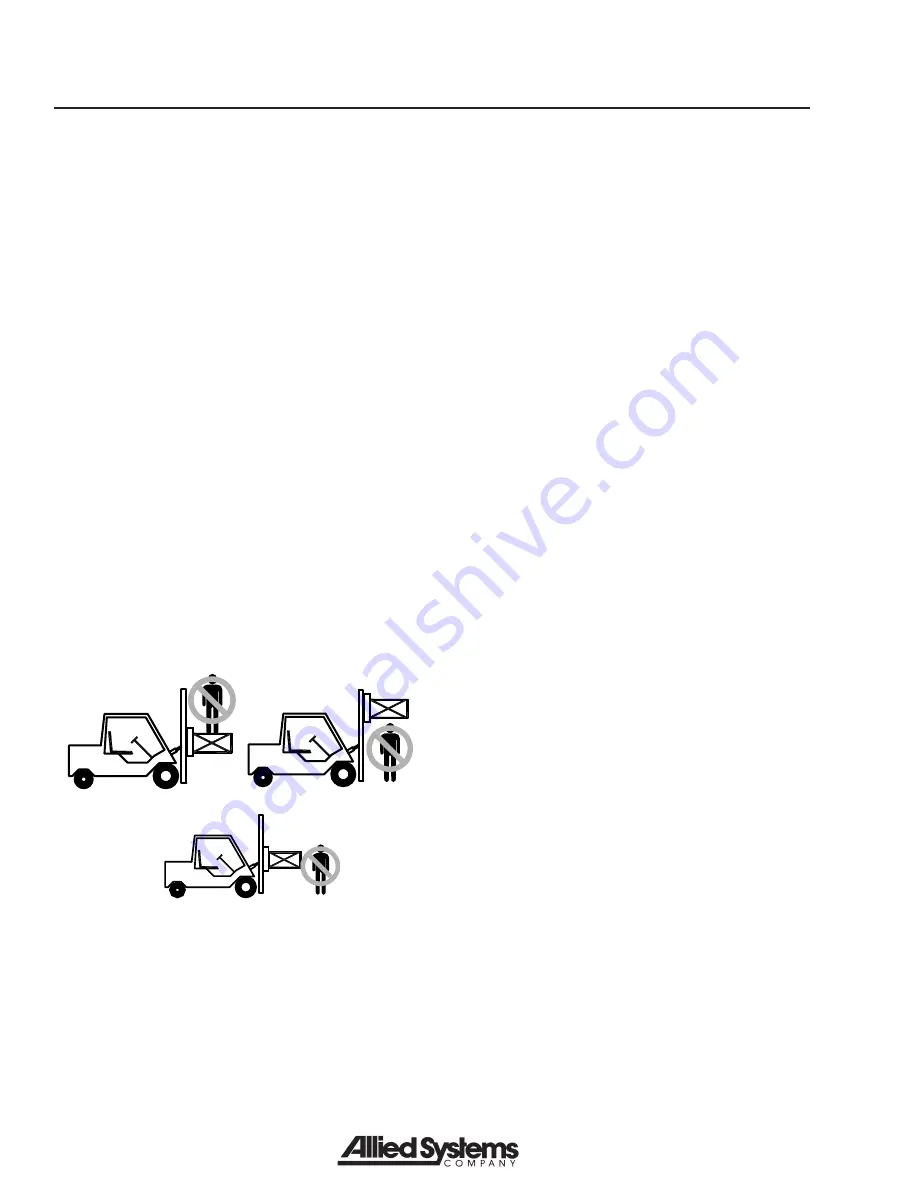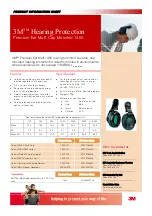
6
45-034, REV. 5/18
•
Modifications or additions that affect capacity or safe
operation must have prior written approval from the
forklift truck manufacturer. Capacity, operation, and
maintenance instruction plates, tags, or decals shall
be changed accordingly.
•
Never use free rigging for a below-the-forks lift. It
could affect the capacity and safe operation of a lift
truck.
3.6 Personnel Safety
•
When removing or installing dismountable attach-
ments always keep hands and feet free from
dangerous positions or pinch points. Never leave a
dismounted attachment in a dangerous position.
•
Keep hands, feet, long hair and clothing away from
power-driven parts. Do not wear loose fitting clothing
or jewelry while performing maintenance and lubrica-
tion in these areas.
•
Never jump on or off the machine.
•
Never stand on top of material being raised, lowered,
or transported. (Figure 3-1)
Figure 3-1 Figure 3-2
Figure 3-3
•
Never use the attachment or its load to support a
man-carrying device.
•
Never allow anyone under a load or under the
carriage. (Figure 3-2)
•
Never stand in front of or beside an attachment
that is being operated. Never allow another person
to approach an attachment that is being operated.
(Figure 3-3)
•
Never leave an attachment or load in an elevated
position.
•
Never reach through the mast of the truck. Keep all
parts of the body within the driver’s compartment.
•
Always operate an attachment from the operator’s
seat, never while standing next to the lift truck.
•
Do not allow riders on the truck at any time.
•
Always use reverse when carrying a load that
impedes full vision. Watch for pedestrians when
transporting.
•
Always use personal protective equipment (PPE)
appropriate to the situation.
3.7 Pre-start Checks
•
Check your equipment before you operate it. If
anything looks wrong, unusual or different, report it
before using the attachment.
•
Do not operate this machine if you know of malfunc-
tions, missing parts, and/or mis-adjustments. These
situations can cause or contribute to an accident or
damage to the machine. Stop the machine immedi-
ately if problems arise after starting.
•
Check to make sure the attachment on your truck is
the same as on the truck capacity plate.
•
Check for hydraulic leaks and cracked hoses or
fittings. Check the hydraulic oil level in the lift truck
hydraulic reservoir.
•
All electrical cables and connectors must be in good
condition. Use caution in wet weather to avoid danger
from electrical shock.
•
Always check the attachment for proper fit and
engagement of the truck carriage.
3.8 Operation Warnings
•
You must be trained to operate this equipment prior
to operation. Be extremely careful if you do not
normally operate this machine. Reorient yourself to
the machine before starting, then proceed slowly.
•
Always operate an attachment from the driver’s seat.





































